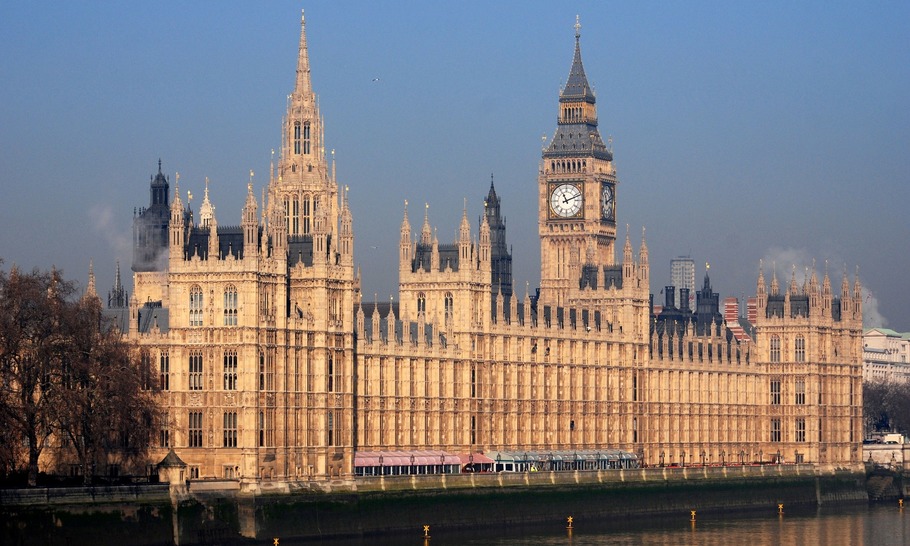Your simple guide to the weirdest week in Westminster

Right then, here we go….
May’s deal rejected in the Commons – again
Between about 7pm on Monday and 12pm on Tuesday, it looked like Theresa May might just achieve the impossible and get her hated deal over the line in parliament. In yet more gruelling talks, she’d extracted a few more reassurances out of EU negotiators, which she prayed would be enough to convince the ERG and DUP that exiting the backstop wouldn’t be a problem.
Unfortunately for her, Geoffrey Cox didn’t play ball. On Tuesday morning, the Attorney General, who had warned in an interview with the Mail at the weekend that his legal integrity was more important to him than politics, published his political judgement on the updated agreement. In the final, damning paragraph he wrote: “the legal risk [of the UK being unable to exit the backstop] remains unchanged”.
And just like that, she was back (almost) to square one. As predicted, the deal was voted down by a huge margin on Tuesday evening – although it’s worth noting that 39 Conservative MPs, including grandees David Davis and Graham Brady, switched sides and put their weight behind the prime minister.
No deal ruled out
In another crushing blow to the government, the ‘Spelman amendment’ was passed in the Commons on Wednesday by a nail-biting four votes (312-308).
The amendment said that the House “rejects the United Kingdom leaving the European Union without a Withdrawal Agreement and a Framework for the Future Relationship.” This was different to the main motion, which offered a caveat: specifically a declaration that “leaving without a deal remains the default in UK and EU law unless this House and the EU ratify an agreement”.
The amendment is not legally binding: it’s a vote expressing the view of the House. But the problem that the whips have is that the government motion is now going to be voted on with Spelman’s amendment in place.
Almost unprecedentedly – and to the absolute fury of Brexiteers – three Remainer cabinet ministers, Amber Rudd, David Gauke and Greg Clark, defied the government three-line whip by abstaining. They have not been sanctioned.
Second referendum defeated
In a rare piece of good news for the government, parliament responded with a resounding ‘no’ to an amendment tabled by Sarah Woollaston of TIG proposing a second referendum. Despite the fact that a second referendum is official Labour Party policy, the Labour frontbench – and most Labour MPs – abstained in the vote. Why? Because they disagreed with the timing of it, and suspected that TIG had only put it forward in order to expose the tensions in Corbyn’s party.
Notably, though, 334 MPs voted against the amendment – meaning that even with the full support of Labour, a second referendum would fail to secure a majority in the house. Although – as People’s Vote campaigners are keen to point out – the defeat would be a lot narrower than many suffered by May this week, and her deal still sees the light of day.
Parliament ruled out parliament taking control
Now this was a weird one for any outsiders looking in on British politics. Hilary Benn’s amendment, designed “to enable the House of Commons to find a way forward that can command majority support”, was voted down… by the House of Commons. The defeat was one of the narrowest in recent memory (just two votes) and will have come as a huge relief to the government: a series of indicative votes on potential Brexit options is the very last thing our beleaguered prime minister needs at this stage.
Bercow refused to select amendment ruling out a second referendum
The relationship between John Bercow and the Tories – not good at the best of times – has reached breaking point. For Thursday’s debate, the Speaker selected amendments from three arch remainers but failed to select the amendment ruling out a second referendum, despite it having more cross-party signatories than any of the others combined. Many Tories are worried that the Speaker is showing unchecked and blatant partiality to the remain side.
Delay to Article 50 agreed
After the chaos of Tuesday and Wednesday (when both May’s deal and no deal were voted down) an extension of Article 50 was pretty much inevitable. But when it came to the vote on Thursday night, more than half of Tory MPs voted against the motion tabling it.
Steve Barclay wound up the debate for the government, saying: “It is time for this house to act in the national interest, it’s time to put forward an extension that is realistic” – before voting against that very argument. Bizarrely, Chief Whip Julian Smith – whose job it is to get MPs to vote with the government – abstained rather than voting with the government himself.
Given the motion had the support of a good deal of Conservatives and nearly all of the rest of the House, it’s likely that Conservative MPs who voted it down did so to placate their leaver constituents, safe in the knowledge that it would pass anyway.
Malthouse amendment voted down
If you, like me, had never quite got your head around the fiendishly complicated Malthouse amendment, relax. Now you’ll never have to.





